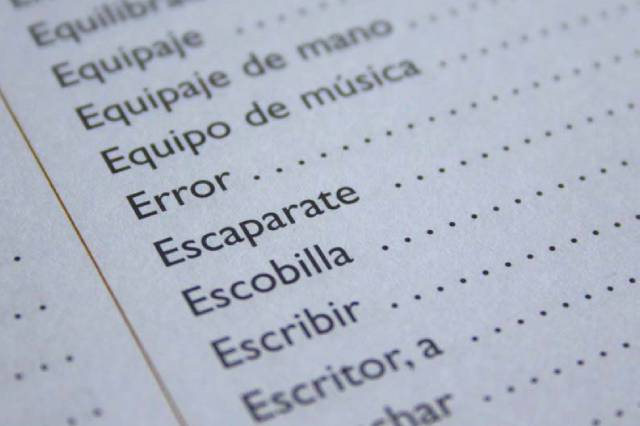Spanish language is the second most learned language across the world. With the increasing numbers of non-native speakers, the use of Spanish language in the fields of business, technology, art and knowledge transfer is on the rise. However, its importance to the modern world is only one side of the coin, the other side being the discovery of the beautiful landscape and historical significance of the Spanish region. A small travel to this region aided by basics of the Spanish language has the potential to open up the experience on a deeper level for the learner and traveler.
It is a great myth that all native speakers are aware of the entre word-list and grammatical structures of a language and that is how they have gained proficiency. This is untrue as even the most fluent speakers may not use certain words, or know of their existence. Therefore for a fresh learner, knowing the appropriate words and gestures does the trick in mastering the language quickly. I shall attempt to introduce the reader/learner to the basics of the Spanish language which allow one to function sufficiently when in the country or talking to a native speaker for better comprehension.
Shall we begin? Si! (pronounced: See) translated in English as Yes.
Are you worried? No. In Spanish as in English the word for a negative response stays the same (pronounced Noh)
It’s a beautiful morning as I write this, a little warm though. I want to wish you a Good Morning. In Spain, they’d say ‘Buenos Dias’ (Pronounced buo-nes dee-aas) and as you retire for the night they’d say ‘Buenos Noches’ (Pronounced Buo-nesNaw-ches)
Being in a foreign region can be very intimidating especially for an unaided or solo traveler. The first instinct is to find familiarity or seek someone who speaks English. It is a beautiful to be multi-lingual but it is even more precious to be understood and to converse irrespective of the language of exchange. So one should ask ‘¿Hablaustedinglés?(Pronounced: ah-blah oo- stehteen-glays) which translates to ‘Do you speak English?’. If they respond with a Si! Or Yes, voila you have connected with another in a foreign region because of the spread of English.
If you’re in a problem, or require directions to a place say to the Spaniards, Disculpe (pronounced: dees-kool-peh) which means ‘Excuse me’ AND ¿Me puedeayudar? (Pronounced: meh poo-eh-deh ah-yoo-dar) which means ‘Can you help me?’ and wait for the Si.
For directions you ask ¿Dóndeestá…? which means “Where is?’ (pronounced: don-dehes-tah) and then follow it up with where you want to go or reach, for instance DondeEsta McDonalds? Following a string of Spanish words or directions is Greek to the basic learner so it is wise and less cumbersome to ask the person to write down the address, or the directions, or numbers. For this, one must say Por favor, escríbalo (pronounced por fah-bores-kree-bah-loh) which means Please, write this down.
Shopping is always a big part of the vacation apart from eating of course. And one goes to a store with the beautiful Spanish goods, and wonders what the prices are, one must first look on the object for a price tag. If there is price printed, then one must ask the helper/owner ¿Cuánto cuesta? (pronounced:kwan-tohkwes-tah) which means ‘How much is it?’
There are many wants and wishes on a vacation! You may want water, or want more sauce in your salad, or you want sunshine in your life. The words for ‘I want’ in Spanish are ‘Quiero’ (Pronounced kyair-oh) and for I’d like the words are ‘ MeGusta’ (pronounced as mee goo-stah).
Following is a word list of the most common words:
Eggs – Huevos (Pronounced as Webos)
Lunch- Comida (koh-mee-dah)
Vegatables- Verdura (Wayr-do-rah)
Rice- Arozz (A-rotth)
Beer- unacervez (oonather-betha)
Coffee-un café (oonkaa-fay) + with milk – con leche (kon le-che)
Water- agua (agwah)
Juice- Zumo or Jugo (zoo-moh)
Tea – unte (oontay)
And after, all of this I wish to thank you for having the urge to learn a new language or to travel to a beautiful place. And I wish to thank you for reading through my entry and for that I shall say Gracias! (pronounced as GRAH-SYAHSS)
